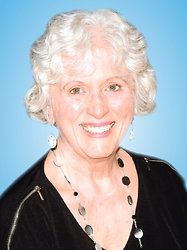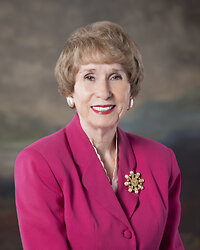'We become less lovable the less we love ourselves.'
- Graham Bretherick
Rodney Dangerfield was successful by making self-deprecating comments. Unfortunately, many of us have a Rodney Dangerfield in us. It keeps us from being successful in relationships and in life. Unlike Dangerfield, the statements are not funny but limiting and destructive.

Most of us would not talk to our best friend the way we talk to ourselves. We wouldn't be saying such things as, 'You are a failure. Nothing you do is good enough.' 'You never do anything right.' 'You are not attractive enough, smart enough and your personality is unappealing.'
Would our best friend put unattainable expectations on us and then ridicule us if we failed to achieve them? A true friend would not say, 'You have to be perfect for me to accept you. You have to do everything right and meet my unattainable expectations. If you make a mistake, I will not like you.' 'You have to put everyone else's needs above your own. We know that many of us treat others better than we treat ourselves. We are more forgiving, kinder, and tolerant with others than we are with ourselves.What makes it difficult to be our own friend is what the famous psychiatrist, Carl Jung said about himself: 'What if I should discover that the least amongst them all, the poorest of all the beggars, the most impudent of all the offenders, the very enemy himself - that these are within me, and that I myself stand in need of the alms of my own kindness - that I myself am the enemy who must be loved - what then?'
Unfortunately, when we don't love ourselves we act in ways that make it more difficult to accept ourselves. As Grahan Bretherick writes in Healing Life's Hurts, 'We cover our insecurities by broadcasting our successes, criticizing whoever isn't present, renting a dark corner for our shyness, becoming overextended and unable to say 'no', criticizing ourselves to get sympathy, taking no risks that might fail, and agreeing with those who like the weather and those who don't.'
Even if it feels strange, we need to practice talking to ourselves as our best friend would do. A best friend would try to help us treat ourselves with respect and kindness. They would point out that we may have failed at something but we are not a failure. They would try to encourage us and help us to look for a more healthy interpretation. They would help not to globalize the mistakes and not let them say who we are but what we do. As a friend we would confront, encourage, process, look at a different perspective, empower us, help us sort out the realistic from the unrealistic expectations, and keep us from labeling ourselves. They would teach us how to love ourselves unconditionally.
Dr. William E. Austin is a licensed psychotherapist and holds a Doctor of Divinity degree. He is a therapist with Tidewater Pastoral Counseling Services . He is well known for his warmth and sense of humor. His book, Creating Our Safe Place - Articles on Healthy Relationships, can be purchased through www.amazon.com.
Tidewater Pastoral Counseling: 623-2700
CURRENT COLUMNS
Publisher’s Point 
Time To Moveby Jean Loxley-BarnardOn The Front Porch With You 
Memories of Homeby Rob LauerChildren First 
Dandelion Timeby Becky AdamsRelationships 
When Your Security Blanket is in the Dryerby Dr. Bill Austin

